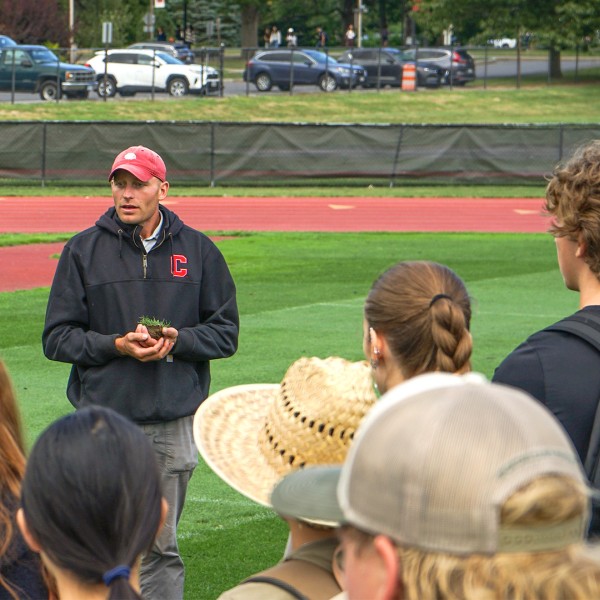Peter Gregory, who for more than a decade supported cadres of international leaders through Cornell’s Hubert H. Humphrey Fellowship Program, has announced his retirement. He plans to retire June 30 from the College of Agriculture and Life Sciences (CALS) where he has served as a noted educator, researcher and administrator since 2001.
Gregory, who holds a Ph.D. in biochemistry from King’s College in London, took over the directorship of Cornell’s Humphrey program in 2012. Administered by the U.S. State Department and organized through the Institute of International Education, the Humphrey program trains mid-career professionals from countries with developing and emerging economies across 13 university campuses in the United States. Cornell’s program, which is based in the Department of Global Development, focuses on agriculture, rural development and natural resource management.
Gregory said he is motivated by the belief that improved understanding between the Fellows and Americans catalyzes improved lives and trust worldwide. During his tenure 114 Fellows from 64 different countries completed the program under his leadership.
A celebration in his honor is planned for April 22 on the Cornell campus.
“It takes a great deal of courage and strength of purpose for Fellows to leave behind families, friends, jobs and countries for an entire academic year,” Gregory said. “I am never as honored as when Humphrey Fellow alumni share how the time they spent with us at Cornell boosted their careers and their lives. We are fortunate to have them here at Cornell, and I know I have learned far more from them than they could ever learn from me. I am immensely grateful to have led this program, and to have worked with so many inspiring Fellows, for the past decade.”






